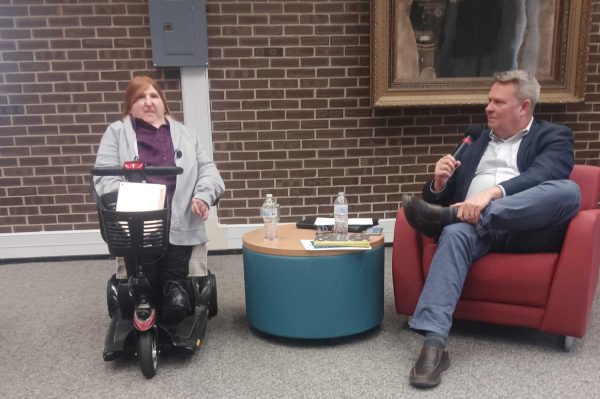Bounty hunter’s free speech still destructive
November 7, 2007
Duane “Dog” Chapman, star of the A&E reality series “Dog The Bounty Hunter,” recently came under fire for a racially charged verbal tirade in which he used the “n-word” several times during a recorded phone conversation with his son, urging him to break up with his black girlfriend.
What separates Chapman’s situation from the likes of Michael Richards and Don Imus is the assurance with which he declares his now infamous words. Imus, using a term that some blacks themselves often use, was most likely ignorant to the true weight of the words escaping his lips. The situation concerning Michael Richards, who was responding to a black heckler disrupting his act, appeared to be, more or less, a mental breakdown.
Chapman has backed himself into a tight corner, however, having made it very clear on the phone call what his views are and why he does not want them being exposed to the media. This means that no one can come to Chapman’s defense on any grounds of his rant being taken out of context or being said in the heat of the moment, and consequently, to compensate for that, some have dared to argue it is his right to have those beliefs and that a private phone conversation, by definition, should remain private.
The notion that it is Chapman’s right as an American citizen to express any ideas, whether morally acceptable or not, undoubtedly revolves around the concept of freedom of speech, which is undeniably one of the core ideals on which this great nation prides itself. However, should the First Amendment be regarded as infallible?
Harmful beliefs that are allowed to grow and nestle between the lines of the First Amendment are dangerous to society in the long run because they aim to stand in opposition of true and absolute liberty and justice for all. Should any idea be protected and accepted at all costs?
It is important to acknowledge that equality is the key ingredient to stability. The further a society pulls away from equality, the more instability is allowed to dominate it. We should respect freedom of speech, but not when it is destructive to the society that it is supposed to protect.
It appears that when it comes to racially sensitive issues, people tend to side with those they most familiarize themselves with rather than what is perceived as right or good. None of these dilemmas should be confronted solely on the issue of racism, but on morality itself.
The idea of racism tends to divide people into two groups of racists or victims of racism. In the land of liberty, only one form of intolerance should be in effect – intolerance of prejudice itself. Blacks should not side with blacks, and whites with whites on such issues. To achieve true harmony among all people we must all possess the courage and ability to unite against any idea that aims to divide us as equals in body, mind and spirit.
One can only hope that someday citizens of all ethnicities can come together as intellectuals and oppose bigotry and ignorance no matter whom it comes from.










